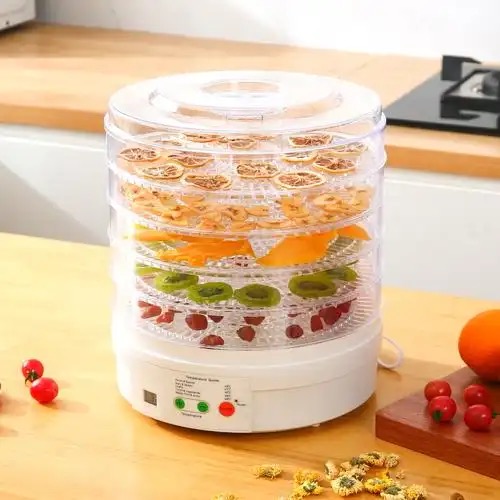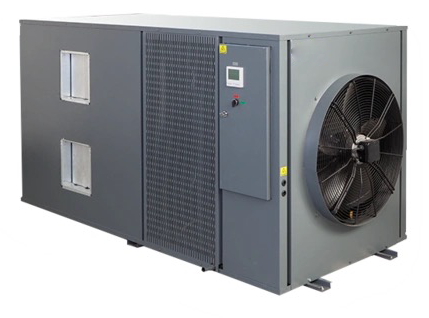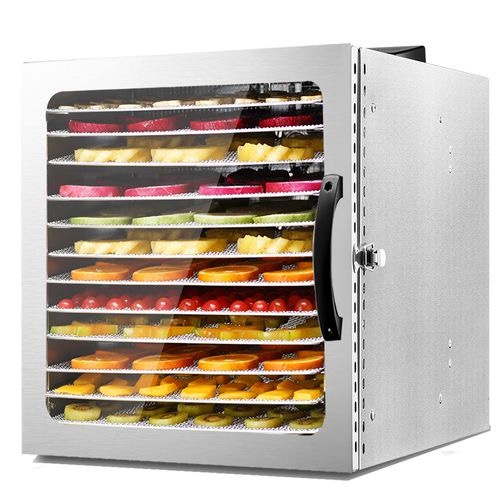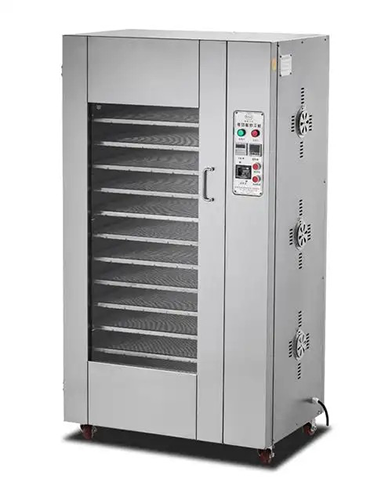
Content Menu
● What is a Heat Pump Dryer?
>> How Does a Heat Pump Dryer Work?
● Benefits of Heat Pump Dryers
● Understanding Stacking Kits
>> Do All Heat Pump Dryers Require A Stacking Kit?
● When to Use a Stacking Kit
>> Installation Tips
● Food Drying Machines vs. Heat Pump Dryers
>> Key Differences
● Advantages of Food Drying Machines
● Choosing Between a Heat Pump Dryer and Food Drying Machine
● Maintenance Tips for Heat Pump Dryers
● Common Misconceptions About Stacking Kits
● Conclusion
● FAQ
>> 1. What is the primary function of a heat pump dryer?
>> 2. Can I stack any heat pump dryer on my washing machine?
>> 3. What are the benefits of using a stacking kit?
>> 4. How does a food drying machine differ from a heat pump dryer?
>> 5. Is it safe to stack my dryer without a stacking kit?
Heat pump dryers have become increasingly popular due to their energy efficiency and ability to dry clothes gently. However, many consumers wonder about the necessity of a stacking kit when using these appliances. This article will explore heat pump dryers, their functionality, and the role of stacking kits, particularly in the context of food drying machines.

What is a Heat Pump Dryer?
A heat pump dryer is a type of clothes dryer that uses a heat pump to recycle hot air within the drum. This technology allows for lower drying temperatures and reduced energy consumption compared to traditional vented dryers.
How Does a Heat Pump Dryer Work?
- Heat Exchange: The dryer pulls in air from the environment, heats it using a compressor, and then circulates it through the drum.
- Moisture Removal: As the warm air passes through wet clothes, it absorbs moisture. The now humid air is then passed through a heat exchanger where it cools down, and moisture condenses into water.
- Recycling Air: The dry air is reheated and returned to the drum for another cycle, making it highly efficient.
Benefits of Heat Pump Dryers
- Energy Efficiency: They consume significantly less energy than conventional dryers. This efficiency can lead to substantial savings on electricity bills over time.
- Gentle Drying: Lower temperatures help preserve fabric quality and prevent shrinkage. This is particularly beneficial for delicate fabrics that may be damaged by high heat.
- Versatility: Suitable for various fabrics and can be used for different drying needs. From heavy towels to lightweight garments, heat pump dryers handle it all.
- Environmental Impact: Using less energy not only saves money but also reduces your carbon footprint, making heat pump dryers an environmentally friendly choice.
Understanding Stacking Kits
A stacking kit is an accessory that allows you to stack a dryer on top of a washing machine. This setup is particularly useful in spaces where floor area is limited.
Do All Heat Pump Dryers Require A Stacking Kit?
Not all heat pump dryers require a stacking kit. The necessity depends on several factors:
- Space Constraints: If you have limited floor space, a stacking kit becomes essential for efficient use of your laundry area. In urban settings where apartments often feature compact laundry rooms, stacking appliances can free up valuable floor space.
- Design Compatibility: Some models are designed to be stacked without additional kits, while others may require specific kits for stability and safety. Always refer to the user manual or product specifications before making a decision.
When to Use a Stacking Kit
If you decide to stack your heat pump dryer on top of your washing machine, consider the following:
- Manufacturer Recommendations: Always check if the manufacturer recommends using a stacking kit with your specific model. Some brands may have specific designs that allow safe stacking without additional accessories.
- Weight Considerations: Ensure that your washing machine can support the weight of the dryer above it. Most modern washing machines are built to handle this, but checking specifications is crucial.
Installation Tips
1. Read Instructions: Follow the manufacturer's installation guide carefully to ensure proper setup.
2. Leveling: Make sure both appliances are level to prevent tipping. Use a spirit level tool for accuracy.
3. Secure Connections: Use all provided hardware to secure the dryer to the washing machine. This includes brackets and screws that come with the stacking kit.
4. Check Ventilation: Ensure there's adequate ventilation around both appliances to prevent overheating and ensure efficient operation.
Food Drying Machines vs. Heat Pump Dryers
While heat pump dryers are primarily designed for laundry, food drying machines serve a different purpose. They utilize similar technology but are tailored for drying fruits, vegetables, and meats.
Key Differences
| Feature | Heat Pump Dryer | Food Drying Machine |
| Purpose | Drying clothes | Preserving food |
| Temperature Settings | Lower temperatures for fabrics | Adjustable temperatures for food |
| Airflow Systems | Closed-loop system | Open airflow system |
| Moisture Management | Condenses moisture into water | Evaporates moisture into air |
Advantages of Food Drying Machines
- Nutrient Preservation: Retains vitamins and minerals better than other drying methods, such as sun-drying or oven-drying. This makes them ideal for health-conscious consumers looking to maintain the nutritional value of their foods.
- Long Shelf Life: Dried foods can last significantly longer than fresh ones, making them perfect for long-term storage and reducing food waste.
- Flavor Concentration: Enhances flavors by removing moisture. Dried fruits like apricots or apples often have intensified sweetness compared to their fresh counterparts.
- Cost-Effectiveness: By drying seasonal produce at home, you can save money in the long run compared to purchasing pre-packaged dried foods from stores.

Choosing Between a Heat Pump Dryer and Food Drying Machine
When deciding between a heat pump dryer and a food drying machine, consider your primary needs:
- If your main goal is efficient laundry drying with minimal energy use, opt for a heat pump dryer.
- If you're interested in preserving food or creating snacks like dried fruits or jerky, invest in a dedicated food drying machine.
Maintenance Tips for Heat Pump Dryers
To ensure optimal performance and longevity of your heat pump dryer:
- Regular Cleaning: Clean the lint filter after every use to maintain airflow efficiency.
- Check Condenser Unit: Periodically inspect and clean the condenser unit as per manufacturer guidelines to prevent buildup that could affect performance.
- Ventilation Check: Ensure proper ventilation around the unit; avoid placing items on top that could block airflow.
Common Misconceptions About Stacking Kits
Many consumers have misconceptions about stacking kits:
- Misconception 1: "Stacking kits are unnecessary." While some models may not require them, using a stacking kit enhances safety and stability.
- Misconception 2: "All dryers can be stacked." Not all models are designed for stacking; always verify compatibility first.
Conclusion
In summary, whether or not you need a stacking kit for your heat pump dryer largely depends on your specific situation, including space constraints and manufacturer guidelines. While heat pump dryers are excellent for laundry, food drying machines offer unique benefits for preserving food items. Understanding these differences can help consumers make informed choices about their appliances.

FAQ
1. What is the primary function of a heat pump dryer?
A heat pump dryer primarily functions to dry clothes efficiently by recycling hot air within its drum while consuming less energy compared to traditional dryers.
2. Can I stack any heat pump dryer on my washing machine?
Not all heat pump dryers are designed to be stacked on washing machines. It's essential to check the manufacturer's recommendations regarding compatibility and safety.
3. What are the benefits of using a stacking kit?
Using a stacking kit maximizes space in smaller laundry areas and ensures stability when stacking appliances on top of each other.
4. How does a food drying machine differ from a heat pump dryer?
Food drying machines are specifically designed for preserving food by removing moisture at adjustable temperatures, whereas heat pump dryers focus on drying clothes.
5. Is it safe to stack my dryer without a stacking kit?
It is generally not safe to stack your dryer without a stacking kit unless explicitly stated by the manufacturer as being safe for such use.












